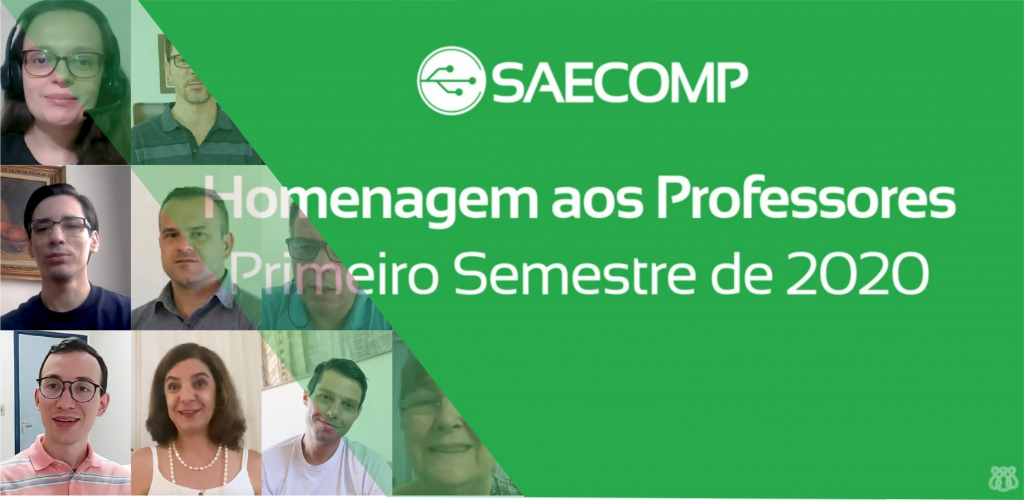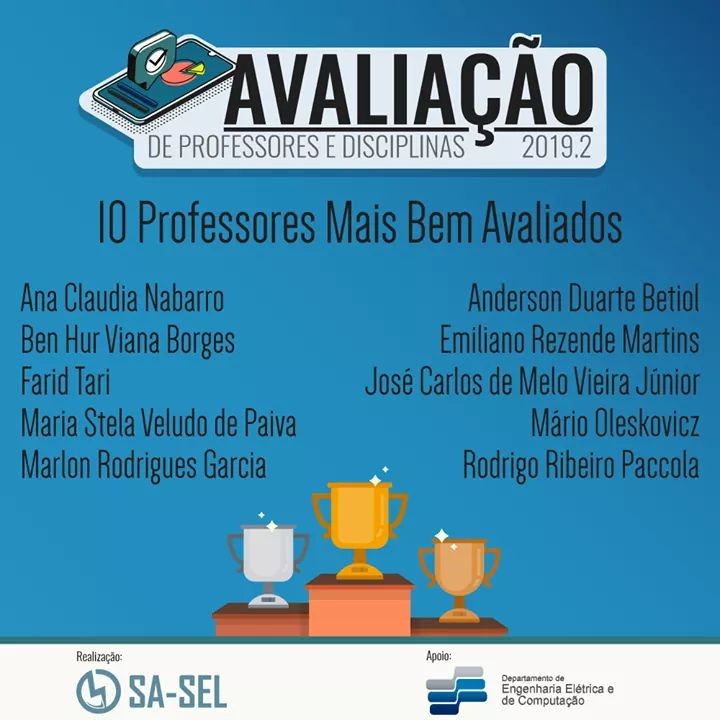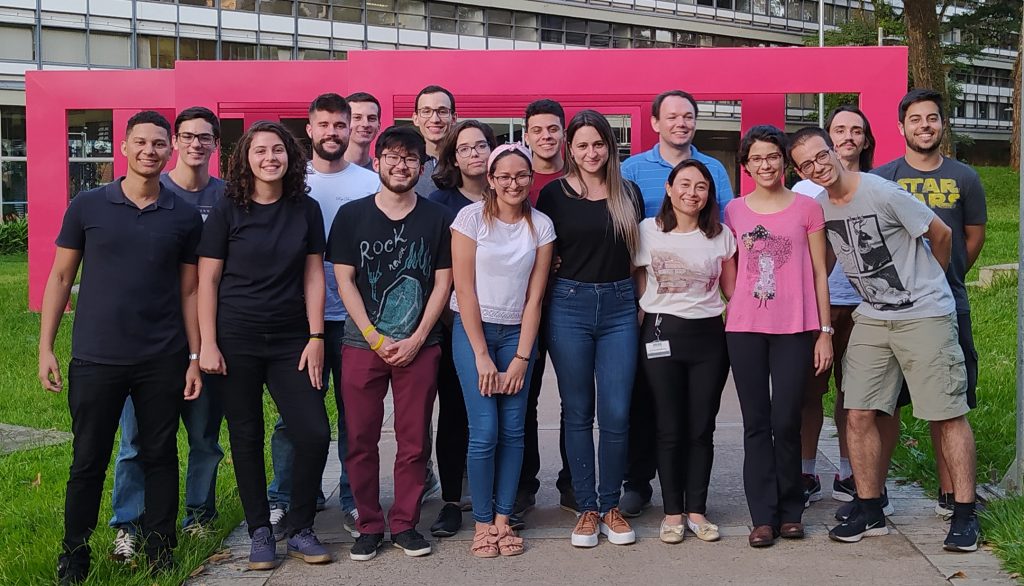SAEComp Award – Excellence in Remote Teaching

Award from the students of academic secretary, SAEComp, for professors from 2nd semester 2020, for their teaching in remote period. See the award video here.
Professors Award from Academic Student Secretary SA-SEL

The student Academic Secretary, SA-SEL, gave the feedback for professors from the 2nd semester of 2019, awarding 10 professors this semester.
City Newspaper – São Carlos Agora

The Center for Research in Optics and Photonics (CePOF) is one of the CEPID’s financed by the Brazilian funding agency FAPESP, coordinated by Prof. Dr. Vanderlei Salvador Bagnato. The Photodiagnosis Laboratory is one of the CePOF laboratories, in a partnership between the Department of Electrical and Computing Engineering (SEL), from the São Carlos School of Engineering (EESC), and the São Carlos Institute of Physics (IFSC). “Our mission is to bring biomedical optics to the bedside to shine other opportunities for human health”, said Dr. Marlon Rodrigues Garcia. All research is conducted in collaboration with Dr. Sebastião Pratavieira, a professor from IFSC-USP.
Among the research developed here, one important work has been done in Photodynamic Therapy (PDT) monitoring. In this field, an online monitoring system has been developed to treat and online monitor the lesion using near-infrared fluorescence images. “Our proposal is to increase PDT cure rates, optimizing the treatment through monitoring”, highlights Dr. Marlon.
The Photodiagnosis Laboratory also performs research in Multispectral Imaging, developing systems that can be coupled to microscopes and performing histology analysis. The team is composed of graduate and undergraduate students, which apply machine learning and artificial intelligence algorithms to detect and classify different tissue regions, like skin cancer and damaged tissue areas.
Another interesting project in the Photodiagnosis Laboratory is the Digital Dermatoscope, developed by the researcher Patrick Oliveira Feitosa, an undergraduate student from the Dept. of Electrical and Computing Engineering (SEL/EESC). The Digital Dermatoscope is a handheld device to acquire images from skin regions, or the mouth to identify lesions or healing progress. This digital device can acquire fluorescence images, excited with violet, and white widefield images.
Also, a dual-channel microendoscope has been also taking attention to help in guidance during surgical procedures, mainly brain tumor resection. The project is developed together with undergraduate researchers from SEL/EESC, Lucas Eduardo Bestteti Romao, and Cesar Yudi Kuramoto (Electrical Engineering). The microendoscope is capable of acquiring histological images from the resection area during surgery, both exciting protoporphyrin-IX and proflavin.

